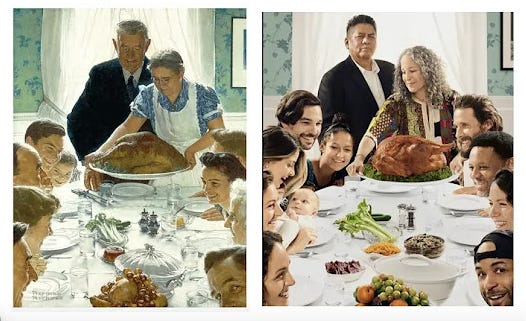
Thanksgiving is a week of national homecoming, of airport snares and highway congestion, uncomfortable table conversations and tears, lots of tears, at seeing loved ones returning safely, or missing loved ones who couldn’t.
The yearning to return home, and to bring family home, is something we all share. I want to explore that in a few ways here.
Earlier this month, I returned home to my college campus, as Brown celebrated 130 years of Jewish life, amidst a swirl of controversy as to whether Jews feel safe there now. Well, they do, and we did, and basically always have. I’ve been back to the campus many times since my graduation, but this intergenerational weekend evoked an emotional response that I didn’t expect. It felt good to be home. Speaking to people whom I haven’t seen in nearly half a century, who knew me when I looked very different but was essentially the same, and feeling the warm comfort of familiar places, I understood what Maya Angelou meant when she wrote, “The ache for home lives in all of us. The safe place where we can go as we are and not be questioned.”
Here I am at the Shabbat candle lighting.
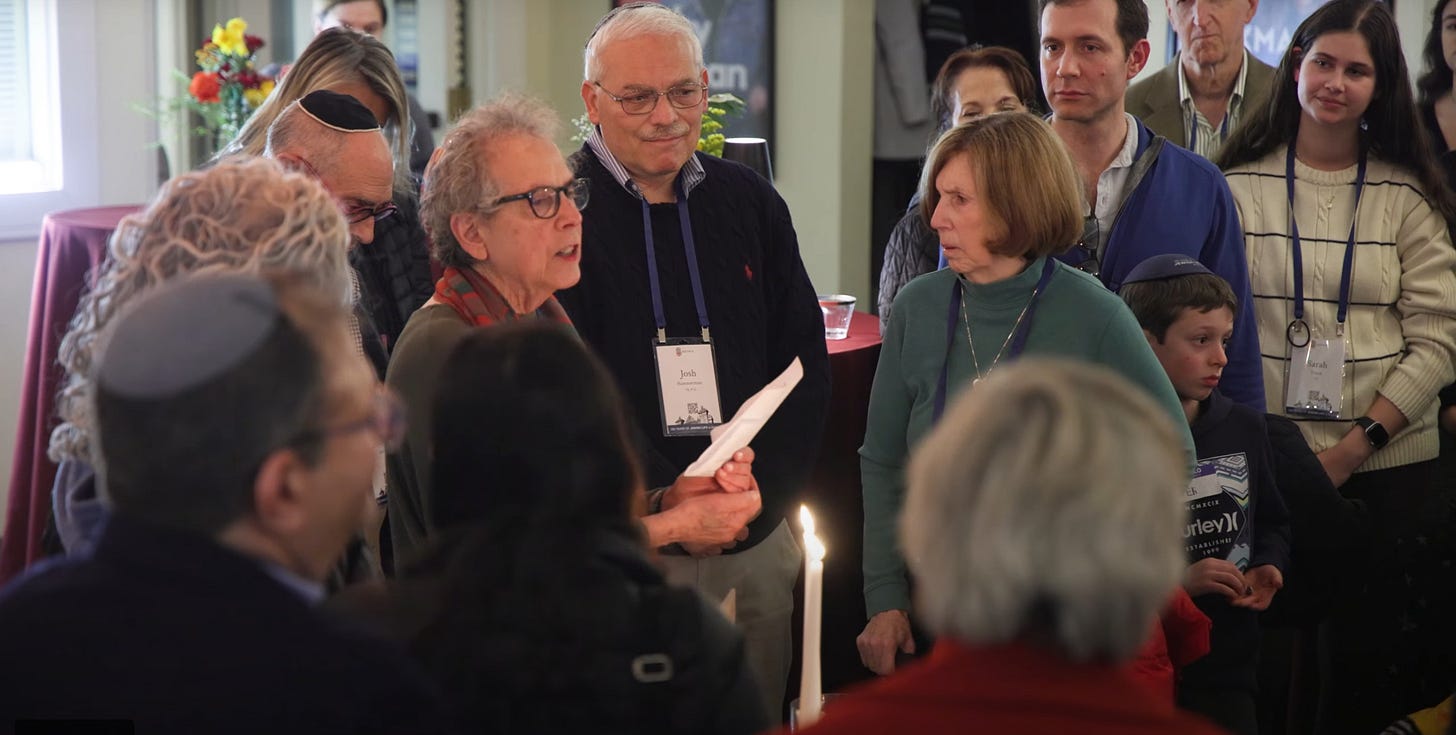
A few weeks before that, at a large gathering in Tel Aviv marking the anniversary of the October 7 massacre and a few days before the remaining living hostages were released, an Israeli singer, Eden Golan, sang a distinctly American song, in English, “I’m Coming Home.”
It is a song that resonates with all human beings, so many of whom find themselves in exile now - whether physically or metaphorically - they are wandering, and wondering what has become of home.
I’m coming home
I’m coming home
Tell the world I’m coming home
Let the rain wash away, all the pain of yesterday
I know my kingdom awaits and they’ve forgiven my mistakes
I’m coming home.
Back in 2014, this same song was covered by singer Skylar Grey to celebrate the return of American troops from Afghanistan, and it reached about four million downloads. And then, a few months later, she adjusted the lyrics to celebrate LeBron James’ return to Cleveland1 - and the song was downloaded another 650,000 times.
Coming home.
That song always brings me to tears.
So does this one - Homeward Bound by Paul Simon. I watched Simon’s duet with George Harrison on SNL when it was first broadcast just before Thanksgiving in 1976 and rediscovered it a few weeks ago.
There is a common human impulse at play here, a biological drive to find our way home, a longing for belonging. Not only is the yearning for home something we all share. So is the yearning to bring our family home - and so is the desire to protect our house.
Paul Simon’s song, appropriately, also opened SNL’s 50th anniversary special last February, in an intergenerational duet with Sabrina Carpenter. The perfect New York song - sung at a place, the SNL studio, that has become sort of a home to so many of us over the decades. As of today, it has 3.5 million views.
This Thanksgiving week, millions of Americans will be homeward bound.
So many find themselves in exile now, where, physically or metaphorically. They are wandering - and wondering what has become of home.
Safe at Home?
Shalom Bayit, peace and safety in the home, is a prime Jewish value. Most know that Shalom means peace, along with hello and goodbye. It comes from the word shalem, meaning wholeness, perfection, fullness, completeness, and contentedness. Strong’s Concordance adds to that list of definitions: health, peace, welfare, safety soundness, tranquility, prosperity, perfectness, fullness, rest, harmony, the absence of agitation or discord. Wikipedia adds that its equivalent cognate in Arabic is salaam, sliem in Maltese, Shlama in Syriac-Assyrian and sälam in Ethiopian Semitic languages from the Proto-Semitic root S-L-M. Shalom is also a name of God, a common name for males (Shlomit for females), and a name of a heck of lot of synagogues.
Many Jewish New Yorkers right now are not feeling that sense of security in their homes - and in their spiritual homes, their synagogues. Some are contemplating leaving the city where their parents rooted for Willie, Mickey, and the Duke,2 their grandparents celebrated on VJ Day in Times Square and their great grandparents plied their wares on pushcarts on Delancey Street.
After this month’s mayoral election, many are sensing that something has been irrevocably altered and, on a gut level that transcends politics, that they may not be as welcome in the place they’ve always called home - and that’s jarring.
Take what happened at Park East Synagogue last week for example. For so many Jews, New York is home and Israel is their homeland. And so, last week, a group promoting Aliyah called “Nefesh B’Nefesh” held a meeting in a very natural place, a synagogue. Aliyah is the term Jews use for immigration to Israel, but it means much more than that. It is an expression of profound religious connection to Jewish destiny - it literally means “going up” and is the same word that is used when one ascends to bless the Torah. There is in fact no more appropriate place for such a meeting to take place than a synagogue.
And yet, when that peaceful meeting was interrupted by incendiary protesters outside, who had the explicit goal of striking fear into the hearts of people gathered in a synagogue, New York’s mayor-elect demonstrated an utter ignorance about Judaism in having his spokesperson suggest that hosting such a meeting in a synagogue was an “inappropriate use of sacred space.”
To be clear, and to his credit, the mayor-elect did not openly defend the use of inflammatory phraseology by the protesters. We’ve made progress. But at time of profound unease among Jews, Mamdani could not have responded in a more insensitive manner, unless his goal - like the protesters’ - was to make Jews feel unsafe in their own homes.
The same can be said of his repeated use of the term “genocide” in regard to Israel’s actions, including Friday in the Oval Office. Throwing around a term that originated with the mass murder of European Jewry is designed to stoke Jewish insecurities. For someone whose stated goal is to let New York Jewry know he’s got their back, it is 100 percent tone deaf.
Mr. Mayor-elect: Think of the 90-year-old Auschwitz survivor in his Upper West Side apartment, seeing his people branded as genocidal. He’s never been to Israel, but he knows that when he was a child, Jews needed a place where they can be safe, a home, and there was none. Now there is (though Israel failed in that one definitive mission on October 73). And now, in your desire to score a propaganda point - one that is wrong - you’ve branded him complicit to genocidal murder4. You think you are trolling Netanyahu and AIPAC but you are really trolling that Holocaust survivor. The Talmud says, “All Jews are responsible one to the other (Shavuot 39a),” so his destiny is tied up with Israel’s, even if he disagrees with its policies. But if you keep looking for every opportunity to toss around accusations of genocide, which encourages antisemitic attacks, do you expect that gentleman to feel safe at home in your city?
I understand some of the sources of Mamdani’s resentment, given that so many Palestinians have been made to feel afraid in their homes and attacked in their fields during the current olive harvest. Some are being evicted5 and others have no home to return to.
For this holiday week at least, let’s rededicate ourselves to forging “peace in the home,” in every home.
And here in the US, according to The Guardian, thanks to a surge of detentions during the government shutdown, 65,000 immigrants, the vast majority with no criminal record, are currently being detained nationwide here in America – the highest number of people in immigration detention ever. So many in America are being made to be fearful in their own homes, as ICE has invaded neighborhood after neighborhood. And today pastors are worried about viral warnings of planned ICE raids on churches.
During the holidays?? Have you no sense of decency, sir?
Mayors and presidents are supposed to help people feel safe at home, to get us beyond primal hatreds. But both Mamdani and Trump have been preoccupied with making their political enemies squirm in their own safe places. Even in their places of worship.
For all people, there’s no place like home. Let’s affirm its sanctity, as so many people return to it this week.
Exile and Home
“Exile and Home” was one of the major themes of part two of my seminar looking back at the documentary series from the 1980’s, Heritage: Civilization and the Jews. I shared part one last week. Below is this week’s lecture.6
Here’s what I had to say about Psalm 1377, which depicts homesick Jews weeping, sitting by the rivers of Babylon. It turns out that the yearning for home - and adaptation to exile - played an enormous role in the growth of Judaism and western civilization.
In the face of utter homelessness, they faced Jerusalem and held it up above their chiefest joy. Disregarding their sorry lot and defying their tormentors, they forged a new destiny. And then, and then, the enemy was destroyed, and redemption was at hand. Psalm 137 is truly a snapshot of a single moment of triumph in Jewish history. The triumph of memory.
This psalm marks the moment when the home team learned how to win on the road.
It is a triumph Jews have repeated time and time again and through the experience of homelessness we have transformed Judaism itself into a stronger and more dynamic faith. The Torah was a product of exile, so was the Talmud and later, the Kabbala. It’s been like this from the very start, from Abraham and Sarah, who were known as Ivri’im, Hebrews, from the word meaning “to cross over,” and they were the ones who crossed over those same rivers, leaving behind the very Mesopotamian soil where their descendants would later weep, choosing homelessness in order to found a new faith.
We may have done quite well on the road, but the yearning for home is what fuels our faith - and anyone’s faith.
And it is a yearning that will be echoed by millions of people this week, at train stations, airports and in automobiles, all in transit, all awaiting that special smile or hug, and that fuzzy warm feeling that comes when the dog lathers you with kisses and the whole apartment building smells like chicken soup.
Let’s resolve over the coming days to talk about what home means to us - and what it must mean to others whom we don’t know as well as we should8. And let’s resolve also to bring peace to the homes of others: not to protest outside or paint hate symbols on their walls9, not to scream threats and spew anger.
Let’s resolve to being peace to the home.
My best wishes to you and yours for a happy Thanksgiving.10
James said: Before anyone ever cared where I would play basketball, I was a kid from Northeast Ohio. It’s where I walked. It’s where I ran. It’s where I cried. It’s where I bled. It holds a special place in my heart. People there have seen me grow up. I sometimes feel like I’m their son. Their passion can be overwhelming. But it drives me. I want to give them hope when I can. I want to inspire them when I can. My relationship with Northeast Ohio is bigger than basketball. I didn’t realize that four years ago. I do now.
Talkin’ Baseball:
You can find a written transcript on YouTube.
See What Does Home Mean Across Different Cultures? (Brainz); see also Significance of Home in Different Religions (Wisdom Library)
Some bonus Thanksgiving material:
1) A Discussion Packet for your Thanksgiving table: “Developing and Attitude of Gratitude“ (poems, prayers and discussion questions)
2) Counting our Blessings on Thanksgiving: Tradition instructs us to recite 100 blessings every day, whether spontaneous or not. Some can be found in the grace after meals (see Birkat Ha-mazon explained in Wikipedia and in the Jewish Virtual Library) If you would like to add some or all of that beautiful prayer to your Thanksgiving meal, it can be downloaded at Birkat Hamazon [pdf]
For your additional Thanksgiving reading pleasure, here are some Jewish and non-Jewish quotations on gratitude:
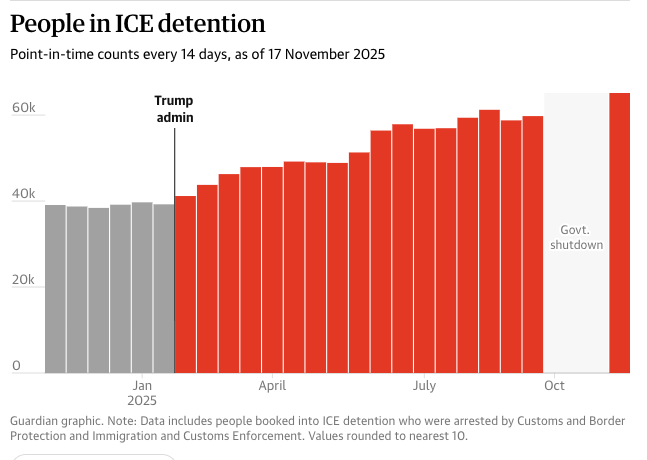
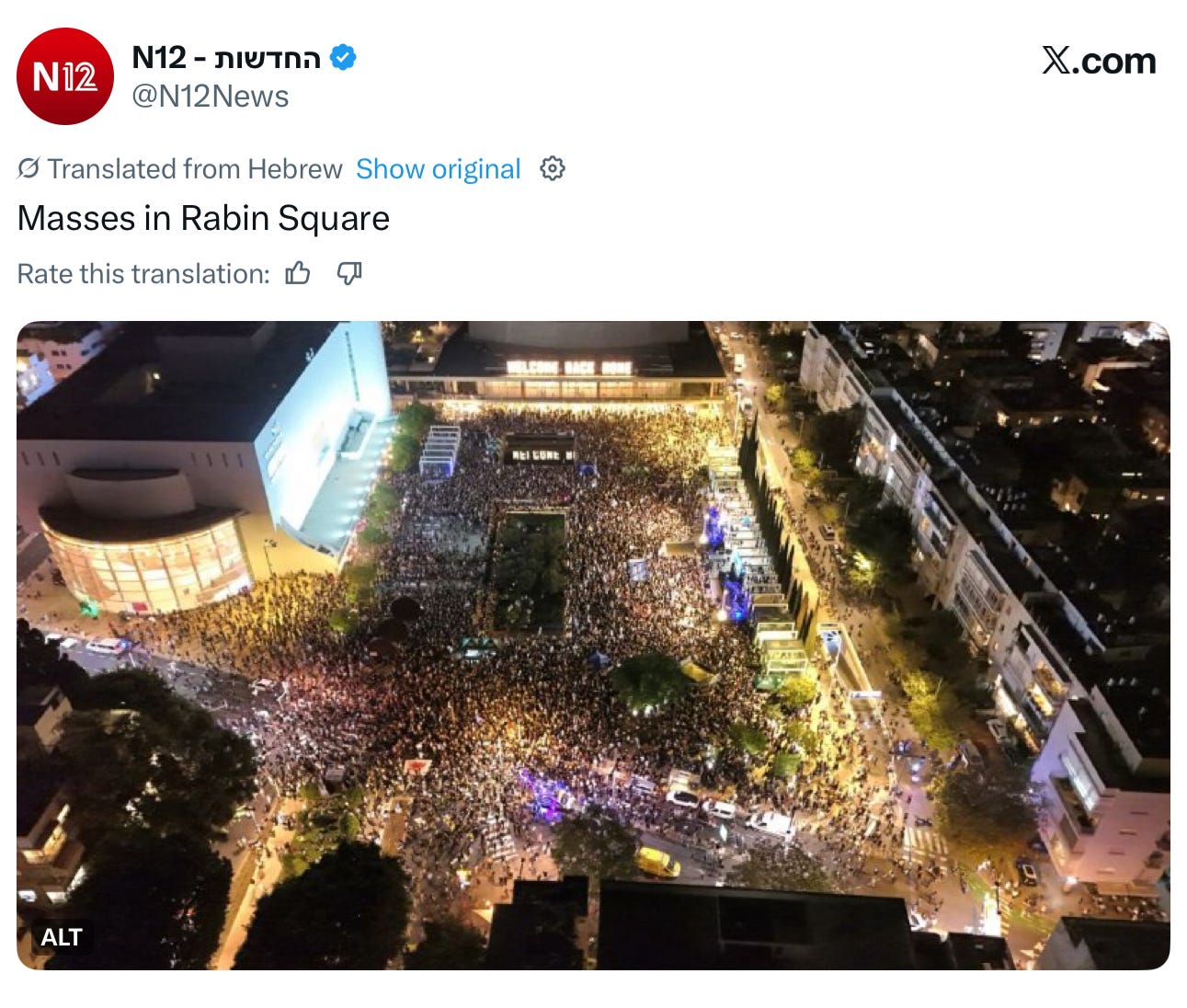
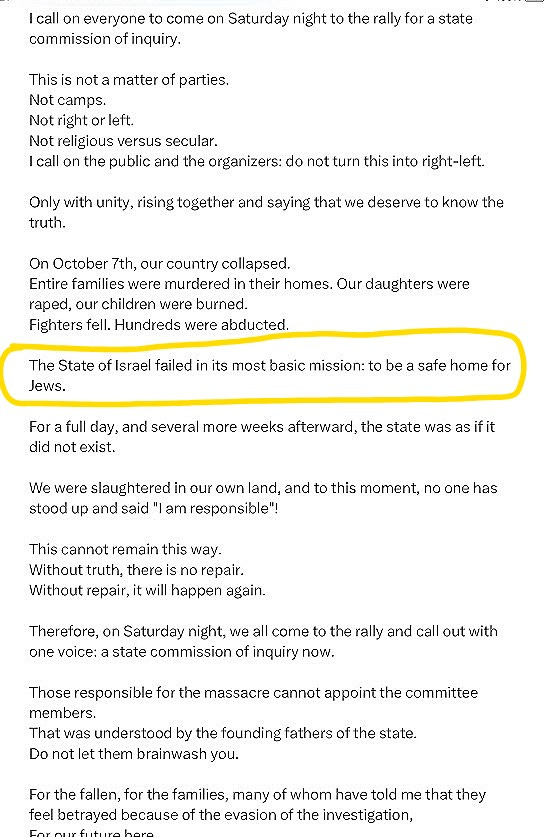
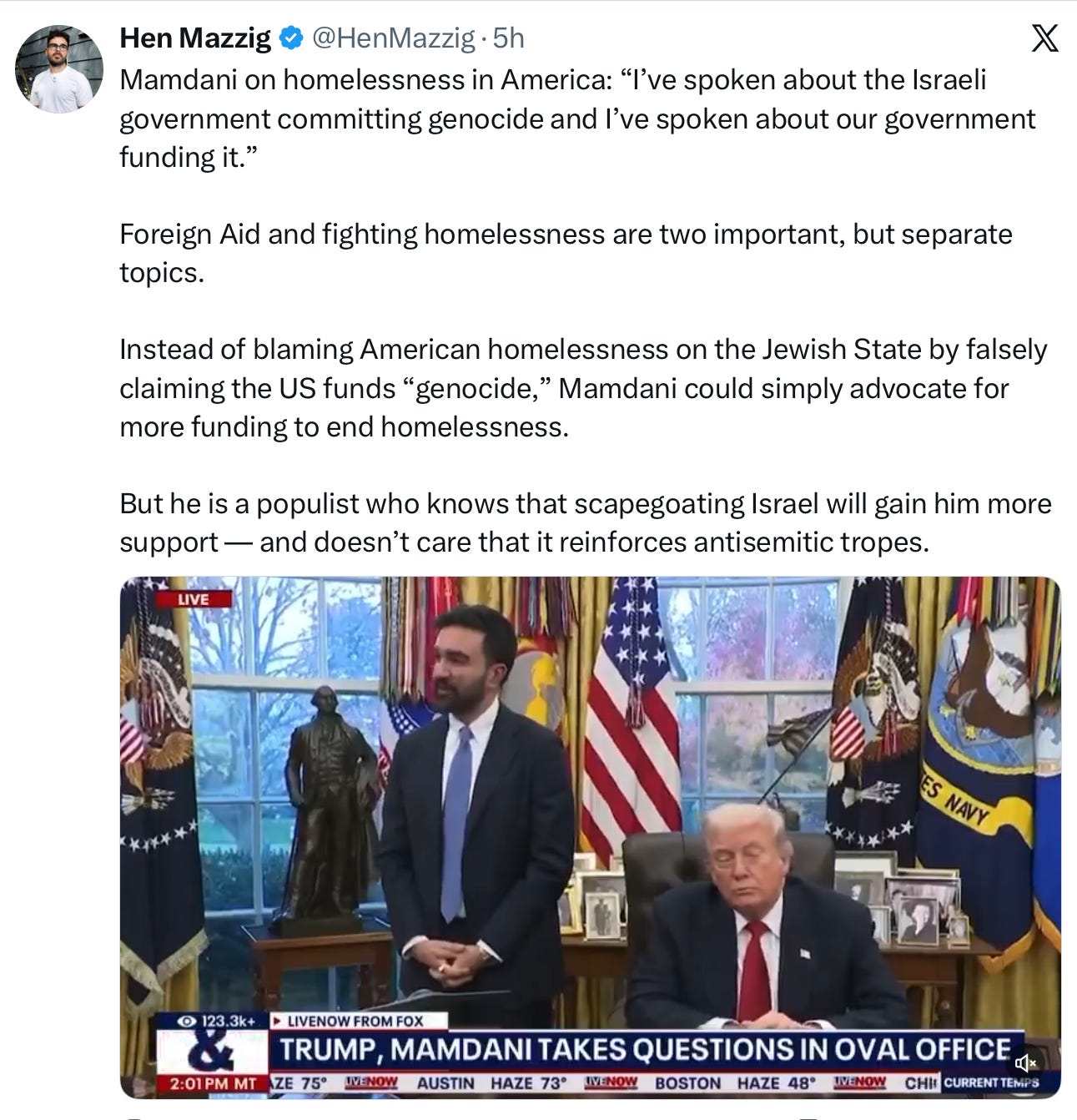
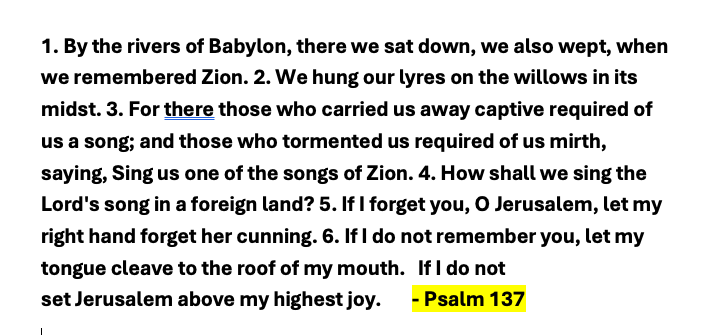

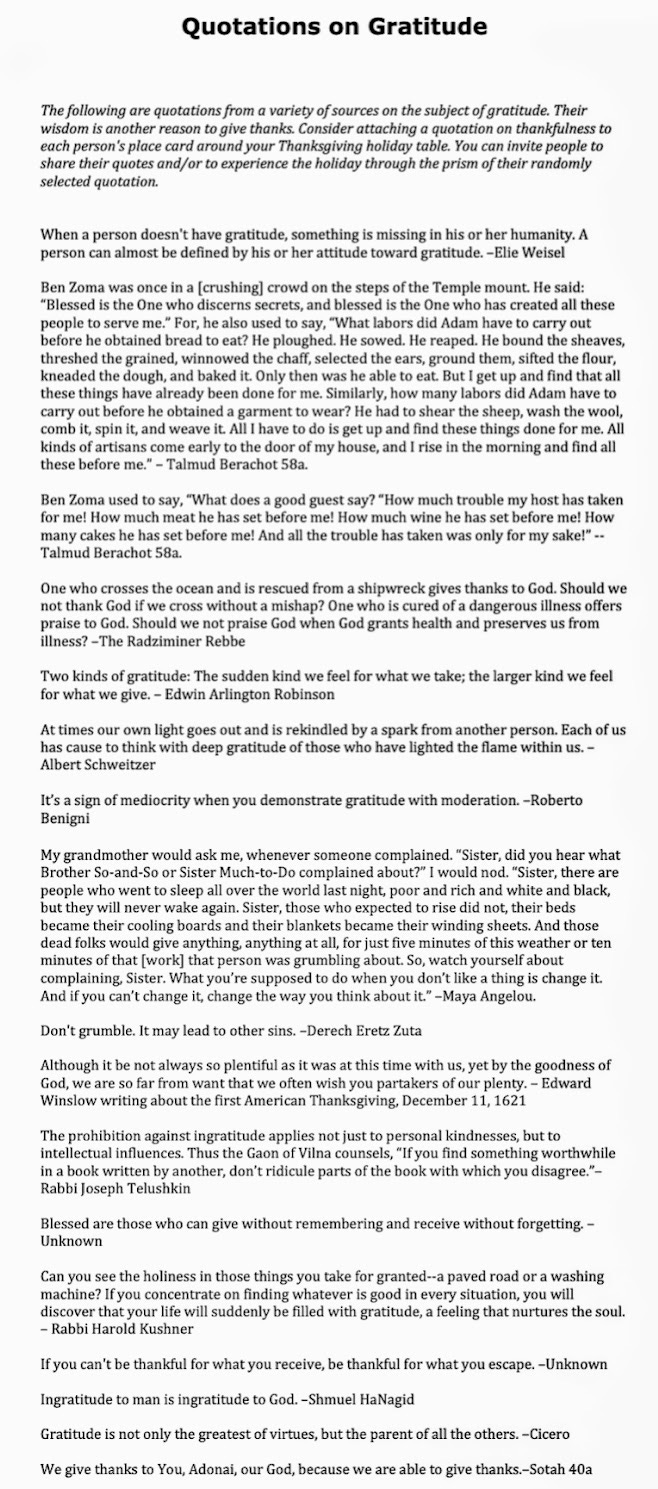
No comments:
Post a Comment